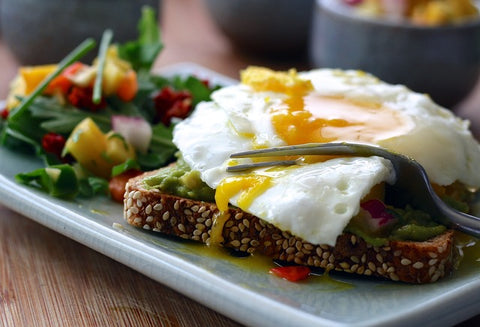Clean eating is a simple and healthy approach to nutrition that focuses on whole, unprocessed foods. It emphasizes the quality of the food you eat, rather than the quantity or calorie content. A vital component of clean eating is the inclusion of adequate protein, which plays an essential role in various bodily functions. Let’s delve into the fundamentals of clean eating with a special focus on the importance of protein.

What is Clean Eating?
Clean eating is about consuming whole foods in their most natural state, or as close to it as possible. It involves choosing fruits, vegetables, whole grains, healthy fats, and lean proteins while avoiding processed foods, additives, preservatives, and artificial ingredients.
The Importance of Protein in Clean Eating
1. Building Blocks of the Body: Protein is crucial as it helps build and repair tissues. It’s the building block of bones, muscles, cartilage, skin, and blood.
2. Weight Management: Incorporating protein into your diet can aid in weight loss and management. It increases satiety, reducing overall calorie intake by keeping you fuller for longer.
3. Muscle Health and Recovery: For those engaged in physical activities, protein is essential for muscle repair and growth. It aids in recovery post-exercise and helps maintain muscle mass.
4. Boosting Metabolism: Protein-rich foods require more energy to digest, absorb, and process, which can slightly boost your metabolism.
5. Supports Overall Health: Adequate protein intake supports the immune system, aids in hormone production, and maintains healthy hair, nails, and skin.

Sources of Protein in a Clean Eating Diet
1. Animal-Based Proteins: Lean meats, poultry, fish, and eggs are excellent sources of high-quality protein.
2. Plant-Based Proteins: Beans, lentils, chickpeas, tofu, and quinoa are great options for vegetarians and vegans or anyone looking for a quality non-meat option.
3. Dairy and Dairy Alternatives: Greek yogurt, cottage cheese, and plant-based milk alternatives can be included for their protein content.

How to Incorporate Protein into Your Clean Eating Plan
1. Balance Your Meals: Aim for a balance of protein, carbohydrates, and fats in each meal.
2. Choose Lean Proteins: Opt for lean cuts of meat and skinless poultry. Fish like salmon and trout are also excellent choices.
3. Plant-Based Options: Incorporate a variety of plant-based proteins to ensure you get all the essential amino acids.
4. Snack Wisely: Choose protein-rich snacks like nuts, seeds, or Greek yogurt to keep you satiated between meals.
The role of protein in a clean eating diet is indispensable. It’s not just about building muscles; it’s about sustaining a healthy and balanced lifestyle. By focusing on whole, unprocessed foods and ensuring adequate protein intake, you’re on your way to a healthier, more vibrant you. Remember, the key to clean eating is simplicity and nourishment, and with the right protein choices, you’re ensuring your body gets what it needs to thrive.